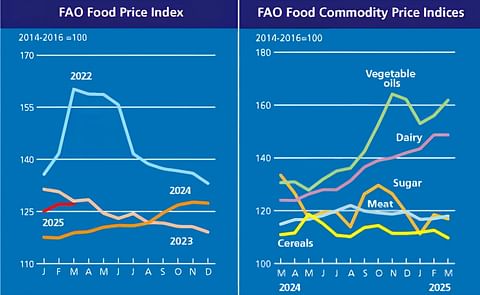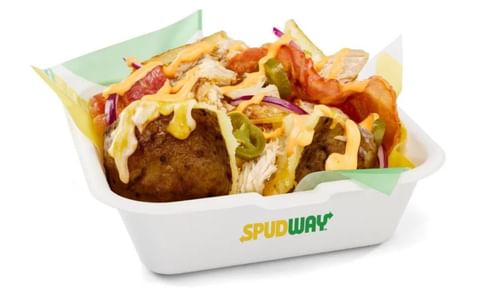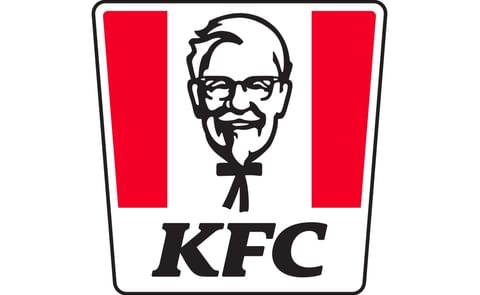You may not only need a magnification glass, but a smart-phone as well: the compromise would allow three labeling options: (1) a phrase indicating that the food product contains genetically modified organisms (GMOs), (2) an on-pack symbol or (3) a QR or bar code that consumers could scan with their smartphones.
GMO Labeling Compromise ready for US Senate to consider

A landmark Senate agreement on national disclosure standards for genetically engineered foods would allow companies to disclose GMO ingredients through digital codes rather than on-package language or symbols.
The agreement, reached between Senate Agriculture Chairman Pat Roberts, R-KS, and ranking Democrat Debbie Stabenow of Michigan, also would use a narrow definition of genetic engineering that would exempt the newest biotech methods such as gene editing from the national disclosure standards.
Both the definition and the option for digital codes rather than on-package labeling represent major victories for farm interests, biotech developers, and food companies that have long resisted mandatory GMO labeling out of fear that it would stigmatize the technology.
The agreement preempts all state labeling laws related to the labeling of genetically modified food and uses a definition of genetic engineering that potato growers support.
NPC is hopeful that a national solution can be passed into law by Congress before the negative impacts of Vermont’s looming law are felt.
John Keeling, National Potato Council CEO:
The legislation, which will need 60 votes to pass the Senate, would nullify Vermont’s first-in-the-nation GMO labeling law, which takes effect July 1 and would bar any other state from enacting labeling requirements that differ from the federal standards.
Under the legislation, most food companies would have the option of disclosing GMO ingredients through either a digital, smartphone code, the industry's preference, or through an on-package symbol or language that the Agriculture Department would approve. The code would be accompanied by: “Scan here for more food information.”
Small companies would have the option of putting a phone number or website URL on labels instead of the digital code.
The Vermont law requires products with biotech ingredients to be labeled as produced or partially produced with genetic engineering. Such text would be optional under the Roberts-Stabenow deal.
The definition of genetic engineering, or “bioengineering,” would be restricted to traits developed through recombinant DNA techniques, which involve transferring a gene from one organism to another. Techniques such as RNA interference as well as gene editing would be exempt.
The agreement is the result of months of on-and-off negotiations that followed the failure of a committee-passed bill to pass the Senate in March when a motion to advance the measure failed, 48-49, far short of the 60-vote majority needed.
Senators were briefed on the agreement Thursday morning, but the Senate likely won't consider the deal before next week. The House, which is on break until July 5, also would have to approve the legislation since it differs dramatically from the bill that chamber passed last July.
The agreement, reached between Senate Agriculture Chairman Pat Roberts, R-KS, and ranking Democrat Debbie Stabenow of Michigan, also would use a narrow definition of genetic engineering that would exempt the newest biotech methods such as gene editing from the national disclosure standards.
Both the definition and the option for digital codes rather than on-package labeling represent major victories for farm interests, biotech developers, and food companies that have long resisted mandatory GMO labeling out of fear that it would stigmatize the technology.
NPC Backs Roberts-Stabenow GMO Legislation
The National Potato Council supports the legislation released by Senate Agriculture Chairman Pat Roberts and ranking member Debbie Stabenow that establishes a national disclosure standard for bioengineered foods.The agreement preempts all state labeling laws related to the labeling of genetically modified food and uses a definition of genetic engineering that potato growers support.
NPC is hopeful that a national solution can be passed into law by Congress before the negative impacts of Vermont’s looming law are felt.
John Keeling, National Potato Council CEO:
“This is a timely and important step forward in the labeling discussion as it would prevent a patchwork of confusing state laws.”
“We thank the Senators for their hard work on this bipartisan legislation and urge the Senate to vote on it next week.”
Under the legislation, most food companies would have the option of disclosing GMO ingredients through either a digital, smartphone code, the industry's preference, or through an on-package symbol or language that the Agriculture Department would approve. The code would be accompanied by: “Scan here for more food information.”
Small companies would have the option of putting a phone number or website URL on labels instead of the digital code.
The Vermont law requires products with biotech ingredients to be labeled as produced or partially produced with genetic engineering. Such text would be optional under the Roberts-Stabenow deal.
The definition of genetic engineering, or “bioengineering,” would be restricted to traits developed through recombinant DNA techniques, which involve transferring a gene from one organism to another. Techniques such as RNA interference as well as gene editing would be exempt.
Roberts-Stabenow GMO Legislation
Roberts-Stabenow GMO Legislation - full textSenators were briefed on the agreement Thursday morning, but the Senate likely won't consider the deal before next week. The House, which is on break until July 5, also would have to approve the legislation since it differs dramatically from the bill that chamber passed last July.
Like to receive news like this by email? Join and Subscribe!
NEW! Join Our BlueSky Channel for regular updates!
Uitgelichte Bedrijven
Sponsored Content
Sponsored Content
Sponsored Content
Sponsored Content
Sponsored Content










